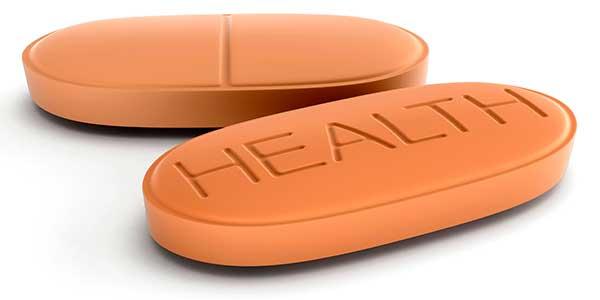Medicaid and CHIP
Immigrants — Medicaid & CHIP
In general, immigrants who entered the U.S. on or after August 22, 1996 must wait five years after receiving qualified status before they are eligible for Medicaid or CHIP. Individuals not yet qualified may be eligible for emergency services and some may be eligible for insurance through the Marketplace.
♦ States have the option to adopt broader eligibility rules for immigrant children and pregnant women.
Immigrants who are “qualified non-citizens” are generally eligible for coverage through Medicaid and the Children’s Health Insurance Program (CHIP), if they meet their state’s income and residency rules.
Medicaid & CHIP coverage for lawfully residing children and pregnant women
States have the option to provide Medicaid and CHIP coverage to lawfully present children and pregnant women.
♦ The term lawfully present includes all qualified immigrants, as well as many other types of immigrants who have permission to live or work in the United States.
States can use CHIP funding to provide prenatal care to women who are ineligible for Medicaid, without regard to immigration status.
Some states use state or county funds to provide Medicaid and CHIP to other groups, such as lawfully present immigrants who do not have qualified status and to children who are undocumented.
♦ States have the option to remove the 5-year waiting period.
A child or pregnant woman is lawfully residing if they’re lawfully present and otherwise eligible for Medicaid or CHIP in the state.
Thirty-five states, plus the District of Columbia, American Samoa, U.S. Virgin Islands, and the Commonwealth of the Northern Mariana Islands, have chosen to provide coverage to lawfully residing children and pregnant women without a 5-year waiting period.
Some states provide coverage under CHIP while others provide cover under Medicaid.
| State | CHIP | Medicaid |
|---|---|---|
| American Samoa*** | Children and pregnant women | |
| Arkansas | Children | Children and pregnant women* |
| California | Children | Children and pregnant women |
| Colorado | Children and pregnant women | Children and pregnant women* |
| Connecticut | Children | Children and pregnant women |
| Commonwealth of the Northern Mariana Islands (CNMI) | Children and pregnant women* | |
| Washington, D.C.*** | Children and pregnant women | |
| Delaware | Children | Children and pregnant women |
| Florida | Children | Children* |
| Hawaii*** | Children and pregnant women* | |
| Illinois | Children | Children* |
| Iowa | Children | Children |
| Kentucky | Children and pregnant women | Children and pregnant women* |
| Louisiana | Children | Children* |
| Maine | Children | Children and pregnant women |
| Maryland*** | Children and pregnant women | |
| Massachusetts | Children | Children and pregnant women |
| Minnesota | Children | Children and pregnant women |
| Montana | Children | Children* |
| Nebraska | Children | Children and pregnant women* |
| New Jersey | Children and pregnant women | Children and pregnant women |
| New Mexico*** | Children and pregnant women | |
| New York | Children | Children and pregnant women |
| Nevada | Children | Children and pregnant women* |
| North Carolina | Children | Children and pregnant women* |
| Ohio*** | Children and pregnant women | |
| Oregon | Children | Children* |
| Pennsylvania | Children | Children and pregnant women |
| Rhode Island | Children and pregnant women | Children* |
| South Carolina | Children and pregnant women | |
| Texas | Children | Children* |
| U.S. Virgin Islands*** | Children and pregnant women | |
| Utah | Children | Children* |
| Vermont*** | Children and pregnant women | |
| Virginia | Children and pregnant women | Children and pregnant women* |
| Washington | Children | Children and pregnant women |
| West Virginia | Children | Children and pregnant women* |
| Wisconsin | Children | Children and pregnant women* |
| Wyoming | Pregnant women | |
|
Source: Medicaid.gov — Updated as of September 2022 * These States cover children in Medicaid up to age 19. ** Virginia is using an 1115 demonstration to cover pregnant women. *** These states are CHIP Medicaid expansion programs. Updated as of May 4, 2023 |
||
Getting emergency care
Medicaid provides payment for treatment of an emergency medical condition for people who meet Medicaid eligibility criteria in the state, but don’t have an eligible immigration status.
Federal law prevents illegal immigrants from being covered by Medicaid. However, another law specifies that the poor cannot be turned away from emergency treatment.
- Medicaid pays out about $2 billion a year for emergency treatment for people who show up at emergency rooms.
A portion of these people are homeless people but a much larger portion are illegal immigrants.
A hospital survey reports that most emergency Medicaid money goes to reimburse hospitals for the delivery of babies.
Medicaid, CHIP, and “public charge” status
Applying for Medicaid or CHIP, or getting savings for health insurance costs in the Marketplace, doesn’t make someone a public charge.
This means it won’t affect their chances of becoming a Lawful Permanent Resident or U.S. citizen.
However, people receiving long-term care in an institution at government expense may face barriers getting a green card.
Public charge means an individual who is likely to become primarily dependent on the government for subsistence, as demonstrated by either the receipt of public cash assistance for income maintenance or institutionalization for long-term care at government expense.
♦ The Trump administration tried to redefine the meaning of "public charge." The intent was clearly to discourage immigrants from applying for benefits and ultimately a green card.
► March 11, 2021 President Biden formally rescinded this rule..
This topic is explained in much greater detail on the page Public Charge Rule
Source: Medicaid.gov, HealthCare.gov, CMS, HHS, USCIS





